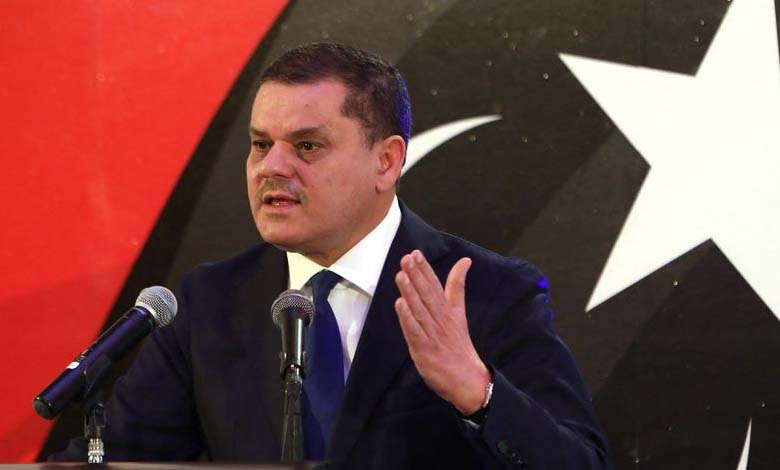Lockerbie bombing: Dbeibeh admits Abu Ujaila’s extradition to Washington

Libyan Prime Minister Abdul Hamid Dbeibeh admitted Thursday night that his government, based in Tripoli, had handed over to Washington Abu Ujaila Masoud, accused of constructing the bomb used to blow up a Pan Am airliner over the Scottish town of Lockerbie in 1988 in an attack that killed 270 people. Observers believe the case will further deepen the political division in a country that is still searching for a peaceful way out.
“Abu Ujaila Masoud was named in investigations two years ago, before the arrival of my government, and an arrest warrant was issued against him by Interpol,” Dbeibeh said in a televised speech.
This is the first time that Dbeibeh admitted that it was his government that handed over the Libyan suspect to Washington after he was exposed to wide criticism, especially from supporters of the regime of Colonel Muammar Gaddafi and others, to undermine national sovereignty for political interests and to get the support of Western powers, especially the United States, to stay in office.
On Sunday, Scottish prosecutors said Masoud was now in US custody, but did not say how he was transferred from Libya to the United States where his trial began.
Dbeibeh presented an Interpol warrant and an international red notice for the arrest of the Libyan suspect, noting that Masoud is accused of being in charge of the bomb-making cell used to blow up the plane.
Masoud’s extradition has witnessed protests and popular and political divisions in Libya, especially since the Lockerbie case was closed nearly 20 years ago. Meanwhile, a document issued by the Libyan House of Representatives in the east of the country has demanded initiating a criminal case against those involved in the “kidnapping” of Abu Ujaila.
The letter clearly indicated that the Libyan parliament, the only legislative authority governing parliamentary and legislative action since 2014, is wary of a new round of pressure with a push to revive the Lockerbie issue.
Dbeibeh justified his government’s decision to extradite Masoud by saying, “It has become incumbent on us to cooperate for the sake of Libya’s stability and to remove the name of terrorism from the innocent Libyan people.” He added, “Cooperation has been completed in accordance with the legal rules with those accused in cases outside the country, especially those of a terrorist nature.”
On the issue of refusing to extradite the accused to Washington, Dbeibeh said that “Libya has been delayed for many years because of its involvement in terrorist operations, until in the eyes of the world we belong to a terrorist state. Some have come to defend a terrorist suspect accused of killing 270 innocent lives.” This comes after the voices of those who rejected the decision were raised, especially by the head of the government supported by the parliament, Fathi Bashagha.
The President of the Tripoli government also stressed his refusal to reopen the Lockerbie case, which was closed two decades ago with a settlement under which Tripoli paid hundreds of millions of dollars in compensation to the victims’ families.
Dbeibeh pointed out that there is a criminal process in which cooperation with the United States regarding the defendants in this case must continue.
In 2008, Moammar Gadhafi’s regime paid more than $2 billion in compensation to the victims’ families to close the case.
The case was reopened in 2016 when the U.S. judiciary learned that Abu Ujaila had been arrested after the fall of the Gaddafi regime and had provided a supposed confession to the new Libyan regime’s intelligence services in 2012.
At the time of the bombing, US investigators uncovered evidence that one of the possible suspects was named “Abu Ujaila Masoud”, but they were unable to locate him.
One person has so far been convicted in the bombing of Pan Am Flight 103 on 21 December 1988, the deadliest terrorist attack on British soil.
The plane, which was heading to New York, exploded 38 minutes after taking off from London, causing its skeleton to fall in the town of Lockerbie while the wreckage spread over a wide area.
The bombing killed 259 people, including 190 Americans, on board the flight and 11 on the ground.
Former Libyan intelligence officer Abdelbaset Al Megrahi spent seven years in a Scottish prison after being convicted in this case in 2001, and died in Libya in 2012. Al Megrahi has long pleaded not guilty.












